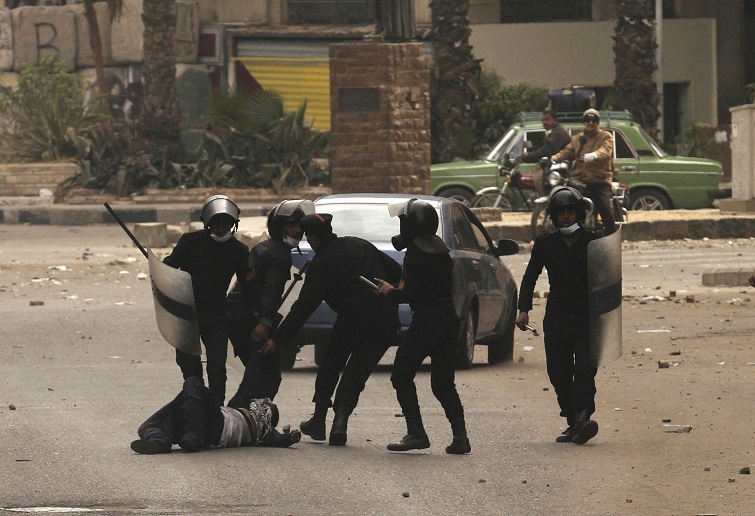
(AFP File Photo)
The United States State Department said Egypt’s three biggest human rights problems of 2012 were threats to women’s rights, failures to prosecute perpetrators of violence against religious minorities, and threats to freedom of speech, press, and association.
The State Department released its 2012 Country Reports on Human Rights Practices, highlighting human rights issues in all United Nations member states, including Egypt.
“The country’s transition to democracy continued to be beset by political turmoil, as well as the breakdown of law and order and established social norms,” said the report. “This breakdown had the largest effect on society’s most vulnerable elements, including women and minorities, who often become the target of violent attacks.”
“Two years after the beginning of the Arab Awakening, we have seen historic elections in Egypt, Libya, and Yemen,” said Acting Assistant Secretary for Democracy Human Rights and Labour Uzra Zeya when releasing the report, “but also troubling setbacks to these democratic transitions, including the erosion of protections for civil society, sexual violence against women, and violence against and repression of religious minorities throughout the region.”
The report also highlighted cases of torture, arbitrary and unlawful detentions, denials of fair public trials, and infringement of personal freedoms.
The State Department discussed torture by police in Egypt, as described by domestic and international human rights organisations, and documented torture allegedly administered by members of the Muslim Brotherhood during clashes near the presidential palace in December.
When discussing Egypt’s security apparatus, the State Department said that impunity was an issue in 2012, but claimed “slight progress” from the previous year in holding security personnel accountable. However the report also acknowledged that most prosecution of police resulted in acquittals.
“Various authorities including SCAF and independent courts partially restricted the rights of speech and press mainly through harassment and censorship,” said the report when discussing freedom of speech and press. “Private and government-initiated lawsuits brought under Mubarak-era provisions of the penal code prohibiting incitement, discrimination, and insults to religion or public figures also restricted expression.”
The document also contained a list of journalists who had been prosecuted under President Mohamed Morsi.
The report was also critical of the government’s dealings with non-governmental organisations (NGOs). “The government continued to use the registration process to prevent domestic and foreign NGOs from working in the country and to delay granting registered NGOs permission to receive foreign funding.” It criticised the Egyptian government for their inconsistent approach to NGOs.
The State Department also said that although the law prohibits rape, the government did not effectively enforce such provisions and sexual assaults and rape continued to represent a serious problem in Egypt.
The report provided a list of obstacles facing women in Egypt, including rape and domestic violence, female genital mutilation, sexual harassment, reproductive rights, and general discrimination.
The department also addressed the escalation of sectarian events in Egypt during 2012.
“Religious minorities continued to face discrimination during the year, and there were instances of sectarian violence against Coptic Christians in particular,” said the report, highlighting previous incidents in Abu Qurqas and Dahshur.


